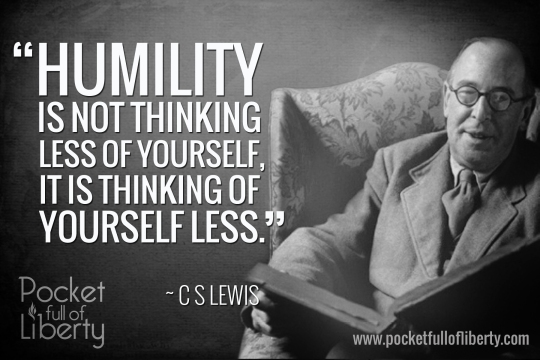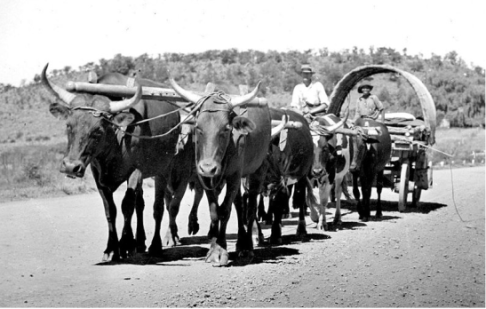Give me the lowest place: or if for me
That lowest place too high, make one more low
Where I may sit and see
My God and love Thee so.
– from The Lowest Place, Christina Rossetti
Humility is the solid foundation of all virtues. – Confucius
Did you ever have an experience, or read something, or hear a song or a speech, or watch a TV show, that started you down a new path of thinking? Lately I’ve found myself noticing various references to humility, and I’ve been turning it over in my mind.
Our world doesn’t put much stock in humility. It’s considered a weakness. It doesn’t get you too far in the job market, or in anything, really, that requires competition with others.
Oh, people pay lip service to it. They express admiration for modest, unassuming people, especially if those people have become successful.
“He’s the same person he was back in high school,” someone might say of a sports or music star that they knew back when.
Everyone likes a modest, unassuming person, but I suspect at least part of that liking is because people don’t perceive that person as a threat. Either they feel safe around the humble person and know they can be their unguarded selves without fear of betrayal or being taken advantage of, or they feel superior to the humble person, and their liking has a touch of disdain to it.
“So-and-so is such a good, humble person. Bless her heart.”
Humility is counter-intuitive. Our first perspective in life, and our most dominant perspective throughout life, is our own, because we cannot escape ourselves. It takes effort and a willingness to consider others equal in importance to us, to shift our perspective and try to understand others, to try to see, think, feel as others do.

Humility is the opposite of self-promotion in a world that demands self-promotion if we are to earn a living and advance in our chosen field, land a mate, recruit the top talent, establish a successful business, reach elected office, have popularity or power and influence. People who practice humility, some believe, are almost asking to be a rung on the ladder that others step on in their climb to the top. Or maybe even the rug underneath the ladder that more enterprising people wipe their feet on.

But the wise know that those who manage to set self aside and practice true humility often possess a quiet self-assurance that neither depends on the approval of those around them, nor compares itself to those others. And as such, that person actually operates from a position of far greater strength than those who feel they must strive and strive to succeed.
All that striving. It makes me tired to think of it.
A few weeks ago, sometime during the Lenten season, I read Jesus’ words in the following familiar passage, from Matthew 11:28-30 (NASB).
28 Come to Me, all who are weary and heavy-laden, and I will give you rest. 29 Take My yoke upon you and learn from Me, for I am gentle and humble in heart, and you will find rest for your souls. 30 For My yoke is easy and My burden is light.
“For I am gentle and humble in heart…” Hmm.
A yoke joins oxen, or some other animals, so that they can work in pairs to pull a load. Logic would seem to dictate that pulling one’s weight with a yoke requires effort, power, brute strength.
Yet the lessons of the yoke that Jesus bade us learn from Him were how to be gentle and humble in heart. These were the qualities He wanted us to cultivate to be strong enough to shoulder His yoke.
Why? Maybe so that we could stop our eternal, infernal striving. Surely this is one way to find a respite, an island of peace in the midst of the trials and turbulence, the rush and strife and noise of daily living. To find, as He said, rest for our souls.

One thought on “The Hidden Strength of Humility”